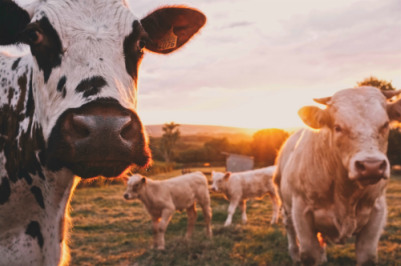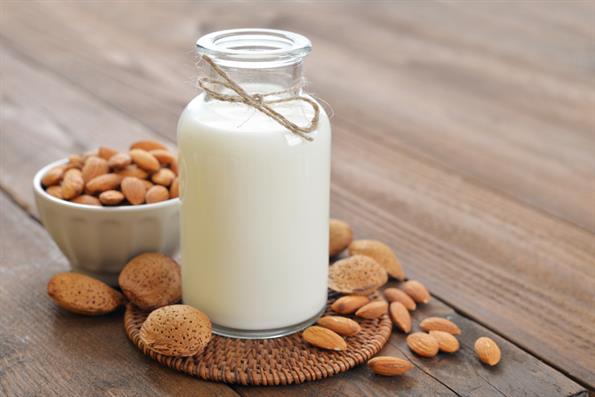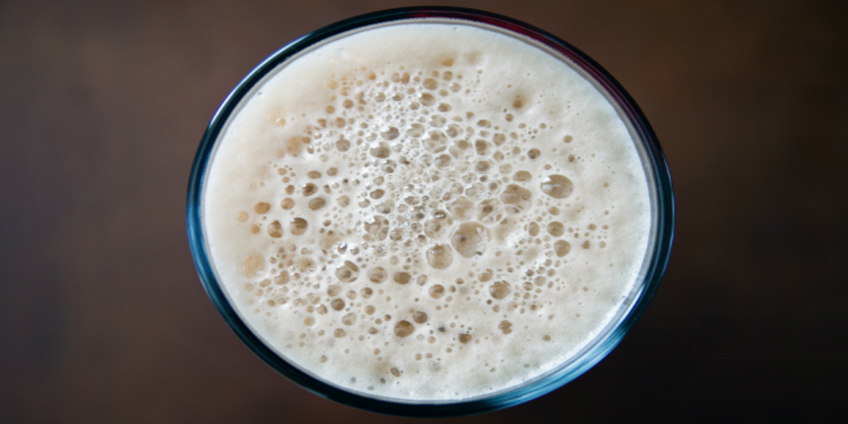Many years ago I discovered something: When I stopped having dairy, I stopped having period pain. Since then, I’ve worked with thousands of patients and I’ve seen the same thing over and over. Stopping dairy can dramatically improve period pain, heavy periods, endometriosis, acne, and PMS.
Stopping dairy can improve period problems, but not every time. It depends on the person, and it depends on the type of dairy.
What’s the problem with dairy?
It’s not the fat
When it comes to ovulation and period health, fat is the best part of dairy. Full-fat dairy may help to promote ovulation and fertility.

It’s not the lactose
Lactose is the sugar in dairy, and it can be tricky to digest if you don’t make enough lactase (lactose-digesting enzyme). Lactose intolerance causes diarrhea and digestive bloating, but it does not cause period problems. Switching to lactose-free products might help your digestion, but it won’t help your period pain.
It might be the hormones
Milk naturally contains small amounts of over sixty different hormones including testosterone, progesterone, insulin, and a potent growth hormone called IGF-1. There’s debate about how much we’re affected by these tiny doses of external hormones. After all, we make a larger amount of the same hormones ourselves. Some experts believe that dairy hormones do affect us, and have linked them to an increased risk of prostate cancer and acne.
It’s probably the inflammatory A1 casein
The biggest problem is a protein called A1 casein. In some people, A1 casein cleaves in the digestive tract to form a potent opiate-type molecule (called casomorphin or BCM7) that stimulates histamine and inflammatory cytokines.
Histamine and inflammation can profoundly disturb periods. And that’s why dairy can cause period problems.
Not every person
Fortunately, A1 casein is not inflammatory for everyone. Some people don’t have the digestive enzyme that cleaves A1 casein, so they don’t form BCM7. But how do you know? Well, at this stage, there’s no easy test. There is a urine test for BCM7, but it’s not yet available for clinical use. To assess for a casein problem, I look for the tell-tale childhood symptoms of recurring tonsillitis, chest or ear infections. They were signs of casein immune disruption in childhood. They were outgrown but that doesn’t mean the underlying casein problem was outgrown. The casein symptoms merely changed to adult problems like recurring chest infections and period pain. Read: The Inflammation from A1 Milk Is Mind-Boggling.

Not every type of dairy
A1 casein is found only in the milk of Holstein (Friesian) cows, which are the main herds in the US, Canada, Australia, and the UK. There is no A1 casein in the milk from Jersey cows, goats, and sheep. Also, there is very little A1 casein in heavy cream, butter, or ricotta (a whey cheese)—so those foods are usually Ok.
To detect a casein sensitivity, try avoiding it
The best way to detect a casein problem is to avoid it for at least three months (even longer for acne). That’s how long it takes for your hormonal system to recover from dairy’s inflammatory effects.
Consider avoiding dairy if you suffer from one or more of following period problems:
- Period pain
- Heavy periods (especially in teenagers)
- Fibroids
- Endometriosis
- Acne
- PMS
Do you need dairy for calcium?
It was just too simple: Dairy contains calcium, therefore dairy is good for bones.
Nice idea, but it doesn’t work like that. A recent large meta-analysis shows that milk-drinkers do not have better bones. In fact, some research suggests that milk-drinkers may actually have worse bones. That makes sense when we consider that dairy is inflammatory, and that inflammation is a major cause of osteoporosis.
Yes, humans need calcium but we don’t need milk. A recent Harvard study concluded that “humans have no nutritional requirement for animal milk.”
Other sources of calcium including green vegetables, almonds, salmon with bones, and these sources are more bioavailable.

Dairy alternatives
You can probably have goat or sheep milk products. You could try also alternatives such as almond milk and rice milk, but you might want to avoid too much soy milk. You can try no milk. Most meals can be prepared without dairy, and remember, you can still have butter. If you love coffee, then have it black, or try it with MCT oil. It’s very good this way!
Bottom line about dairy and periods
For myself, and for many of my patients, I have found A1 casein to be a real problem. That said, I personally do not eat dairy products, and I advise many of my patients to do the same.
For more personalized help handling your periods, contact me for a consultation today!




